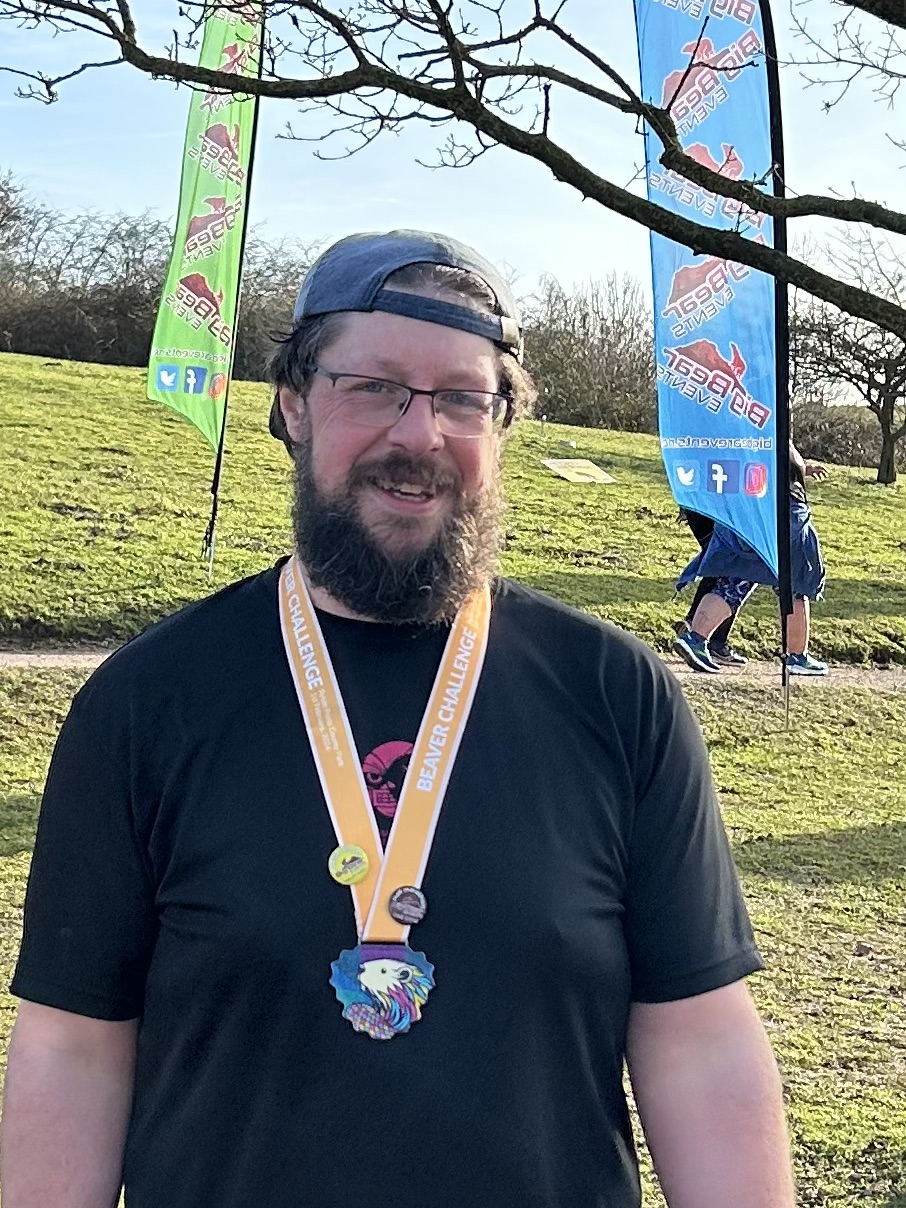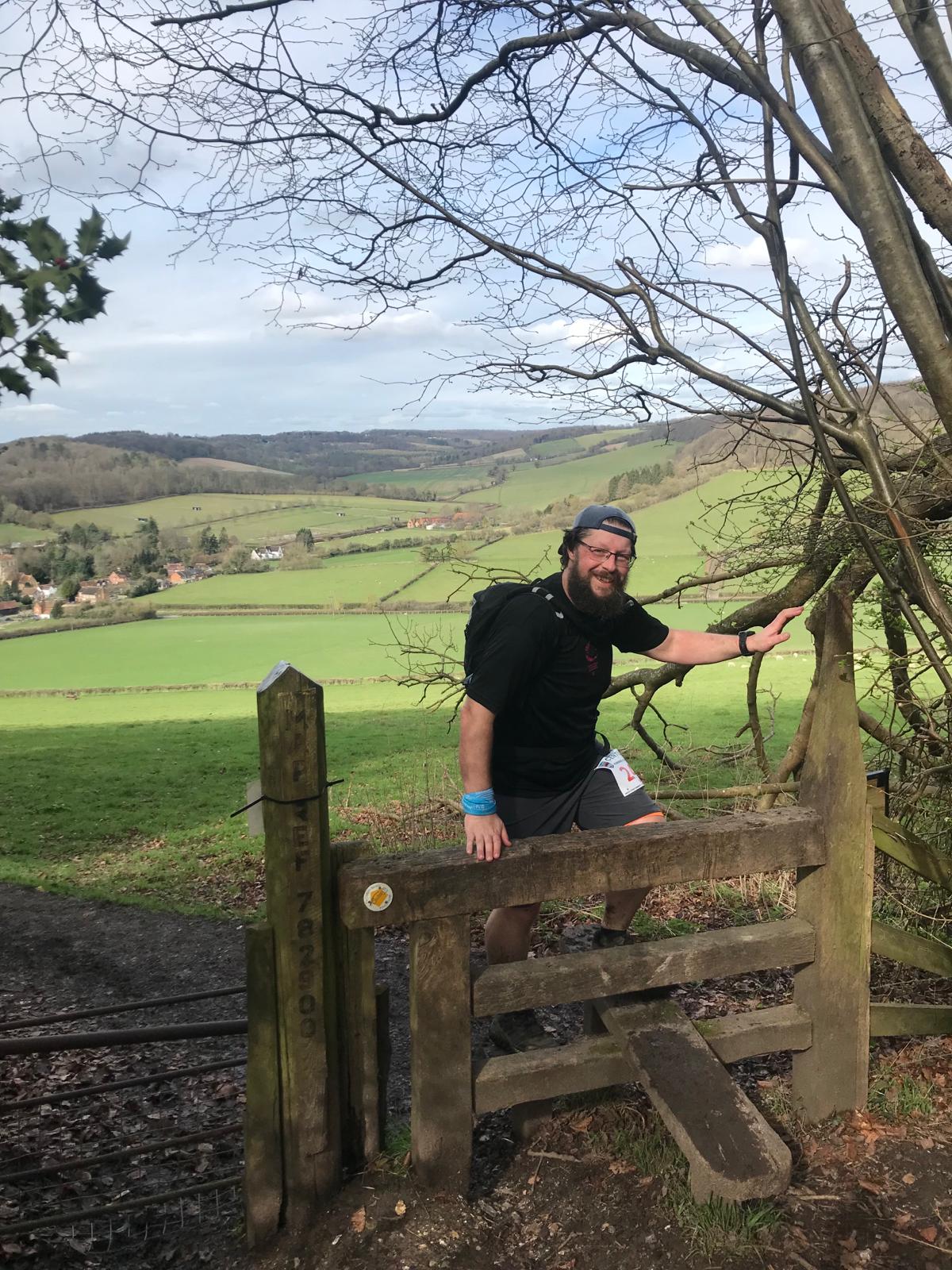“I run because my wife can’t. I challenge myself to complete hard things as she is doing every day in her life.”
Simon ran the Cotswold Way Ultra Challenge on 22 June 2024. Simon’s wife lives with axial SpA.

My wife began experiencing pain during her pregnancies. At the time, it was put down to pelvic girdle pain (PGP). But even then, it appeared to be an extreme version of PGP. The pain settled down between pregnancies, which further allowed us to believe it was this. However, after our 2nd daughter was born, my wife didn’t get better. After 18 months and trying everything from acupuncture, osteopathy, physiotherapy, and chiropractors, we realised this pain wasn’t going away and was getting worse.
“We were feeling helpless and scared.”
She thought her weight maybe causing the problems. So, we both started couch to 5k. But by week 5 she had to stop in serious pain. She was suddenly not able to stand up when trying to get out of the sofa after sitting for a while, she could only walk with crutches, her mental health was declining, and we were feeling helpless and scared. This all went on during COVID, so she was reluctant to seek help and put added pressure on the already stretched NHS. But eventually we were referred from NHS gynie health physio to the MSKA team, who referred her to pain clinic and for an MRI. The MRI led to a diagnosis of bilateral chronic inflammation in both sides of her sacroiliac joint, and some damage to the bones around it.
“NASS have been our source for all information.”
The private chiropractor she was seeing wrote to her GP requesting a referral to the rheumatology team. The pain clinic, who diagnosed her with hypermobility, also recommended referral to rheumatology. Once we got to the top of the waiting list, we were fortunate that a diagnosis of axial SpA was immediate. As she had already tried anti-inflammatories with little affect, she started biologic therapy 6 months after diagnosis. When we saw the rheumatology team, they referred us to NASS, and they have been our source for all information since. NASS has helped us to not feel alone in this life altering diagnosis, and to understand this condition better.
“I run because my wife can’t. I challenge myself to complete hard things as she is doing every day in her life.”
Prior to her diagnosis we started the Couch to 5K running challenge. Once we realised that this was not going to be able to keep happening for us both, I started taking my running more seriously. This has led to me completing half marathons and marathons. I run because my wife can’t. I challenge myself to complete hard things as she is doing every day in her life. I decided to take on this challenge because it is based around running, it will be the furthest I have ever run, and it raises money for a great charity that has supported us so much.

“The training for this challenge is hard and it takes time away from family.”
If you want to take on an ultra challenge, I would suggest:
1. Scope out what is required. The training for this challenge is hard and it takes time away from family, so you need to know what is involved.
2. Think about why you want to do it – what is the key reason behind your challenge!
3. Be positive! Any challenge is hard but you will be able to do anything if you put the hard effort in.
Good luck Simon! Thank you for choosing to support NASS. Every penny you raise helps provide information and support to people with axial SpA with the help of NASS.